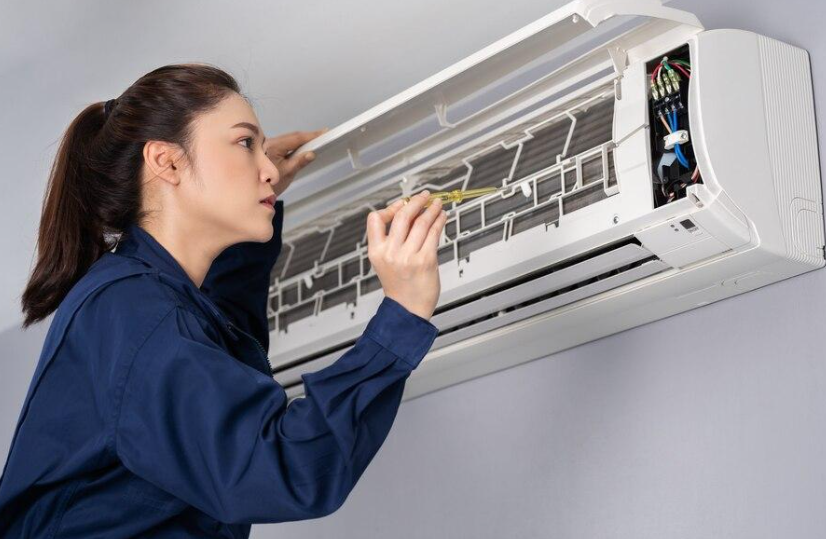Air conditioning is one of those modern comforts that often goes unnoticed—until it stops working. When temperatures rise and the air feels heavy, a reliable system keeps your home cool, comfortable, and healthy. But even the most dependable unit can begin to falter over time. Understanding the common signs your air conditioning needs repair can save you from costly breakdowns, higher electricity bills, and discomfort during the hottest months. Whether you rely on air conditioning Townsville systems or a similar setup elsewhere, these signs apply universally to all air conditioning systems.
1. Weak or Uneven Airflow
If the air coming from your vents feels weaker than usual, or if some rooms are significantly cooler than others, this is often an early sign of trouble. Blocked ducts, clogged filters, or failing compressors can all restrict airflow. When airflow drops, your system must work harder to maintain the same comfort level, leading to increased wear and higher energy costs. Regular filter changes and annual maintenance help, but if performance doesn’t improve after cleaning, it’s time for a professional inspection.
2. Unusual Noises
Air conditioners are designed to run quietly. When you start hearing grinding, banging, squealing, or rattling sounds, something isn’t right. These noises could indicate a loose part, worn bearings, or debris stuck in the fan. Ignoring them can cause minor issues to escalate quickly. A technician can locate and fix the source before it leads to more serious damage, such as a burnt-out motor or broken fan blades.
3. Warm Air or Inconsistent Cooling
When an air conditioner begins blowing warm air instead of cold, it’s a clear signal that something’s wrong. The issue could stem from a refrigerant leak, a failing compressor, or a thermostat malfunction. Sometimes, airflow obstructions or dirty coils can also affect cooling performance. A professional diagnosis is essential to pinpoint the root cause. Consistent cooling is the heart of comfort—if your unit can’t deliver it, repairs are overdue.
4. Frequent Cycling
While air conditioners are designed to cycle on and off throughout the day, frequent or irregular cycling usually means the system is under stress. Common culprits include improper sizing, electrical issues, or thermostat problems. Short cycling not only strains components but also increases your power bill. A technician can recalibrate the thermostat or inspect internal parts to restore balance and efficiency.
5. Strange Odors
An unpleasant smell from your vents isn’t just annoying—it’s often a sign of deeper issues. Musty odors may suggest mold growth in the ducts or on the coils, while a burning smell might indicate electrical faults or overheating parts. Ignoring these smells can compromise air quality and health. A professional cleaning and inspection will eliminate odors and ensure safe operation.
See also: Cleaners Yeppoon: Keeping Homes and Businesses Spotless
6. Excessive Humidity or Leaks
Air conditioners do more than cool; they also regulate indoor humidity. If your home feels damp or sticky even with the AC running, it’s a sign your system isn’t dehumidifying properly. Additionally, any visible water leaks around the indoor or outdoor unit need immediate attention. Leaks can come from a blocked condensate drain, frozen evaporator coils, or refrigerant issues. Left unchecked, moisture can damage walls, floors, and electrical systems.
7. Higher Energy Bills
A sudden increase in energy costs without any change in usage patterns usually signals declining efficiency. Dirty coils, worn-out components, or refrigerant leaks can cause your system to work harder to maintain the same temperature. Scheduling a tune-up can often identify and fix these inefficiencies before they lead to expensive breakdowns. Preventive maintenance pays off in lower bills and longer system lifespan.
8. Ice on Coils or Refrigerant Lines
If you notice frost or ice buildup on your air conditioner’s coils, turn the system off immediately. Ice indicates problems such as low refrigerant levels, restricted airflow, or malfunctioning fans. Continuing to run the unit can damage the compressor, one of the most costly components to replace. Allow the ice to thaw and call a technician to inspect the underlying issue.
9. Aging System
Even well-maintained air conditioners have a lifespan—typically 10 to 15 years. As systems age, efficiency drops and repair needs increase. If your unit is older and frequently requires service, it may be more cost-effective to replace it than to keep patching it up. Modern systems are far more energy-efficient and environmentally friendly.
10. Poor Air Quality
When your air conditioning system begins circulating dust, allergens, or unpleasant odors, it’s not just about comfort—it’s about health. Dirty filters, moldy ducts, or neglected maintenance can worsen indoor air quality. Cleaning or replacing filters and scheduling routine servicing can keep the air you breathe cleaner and healthier.
Final Thoughts
Recognizing these warning signs early helps prevent minor problems from turning into major expenses. If your air conditioner exhibits weak airflow, strange noises, or struggles to maintain cool temperatures, don’t wait for a total breakdown. Schedule a professional inspection to restore peak performance and efficiency. Regular maintenance, clean filters, and timely repairs ensure your system stays dependable throughout the seasons.
Whether you rely on air conditioning townsville solutions or another brand entirely, the key to comfort is consistency. Stay alert to the signs, invest in proper care, and your air conditioning system will reward you with years of superb, quiet reliability.





